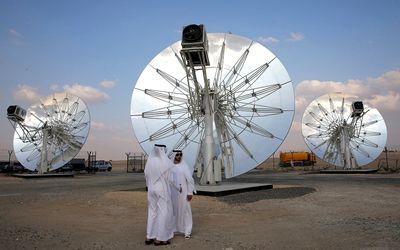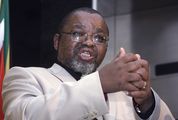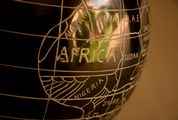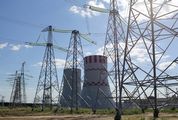SAUDI-based energy firm ACWA Power is planning to invest more than R35bn in renewable and conventional energy projects in South Africa over the next five years, despite the depressed economy that has placed the country at risk of a ratings downgrade.
Speaking on Monday at the commissioning of the R5bn Bokpoort concentrated solar energy plant, which has one of the highest thermal energy storages in the world, ACWA Power chairman Mohammad Abunayyan said he was aware of South Africa’s economic situation, including the decline in foreign direct investment.
"But ACWA power is looking towards the future. We are committed to South Africa. Our total project pipeline exceeds R35bn," said Mr Abunayyan.
The Bokpoort plant, located in Groblershoop near Upington, was to date the biggest investment the Kindgom of Saudi Arabia had invested in South Africa, according to the country’s trade and commerce minister Tawfiq Fawzan Alrabiah.
The plant has the capacity to store up to 9,3 hours of power for night usage and to electrify about 200,000 households.
The Saudi minister said the Northern Cape, where temperatures can exceed 45 degrees Celsius, was one of the top three locations in the world with the highest solar capacity, making it an attractive destination for investment.
The international power utility firm was already planning to begin construction of the R9bn 300MW coal- fired plant in Mpumalanga and another 150MW concentrated solar energy plant also in the North Cape.
Trade and Industry Minister Rob Davies said the Saudi’s investment plans demonstrated deep economic ties between South Africa and the oil-producing nation.
Not only would the Bokpoort plant support Eskom’s ability to meet demand, it would also achieve 230,000 tonnes in carbon-saving emissions, Mr Davies said.
The proposed Redstone concentrated solar energy plant would be located in Postmasburg, about two and a half hours from Groblershoop. It will have the capacity to supply 100MW per kilowatt hour to Eskom, double that of the Bokpoort plant.
Around 1,300 temporary jobs would be created at the plant during construction phase, with about 400 workers being hired from the local community, as was done during the Bokpoort construction.
"We are presently working on finalising (capital)," said ACWA Power managing director for Southern Africa Chris Ehlers.
ACWA Power would finance less than half of R9bn required for the renewable energy project. The shortfall would be injected by local financiers to meet the empowerment targets required under the renewable energy independent power producer procurement programme.
Mike Goldblatt, of private equity empowerment group Lereko Metier, said he recognised the importance of international partners like ACWA Power that brought with them the best practice in renewable power. However he emphasised the need for South Africa’s renewable energy independent power producer procurement programme to also be a local endeavour.
Lereko Metier is an investor in the Bokpoort concentrated solar energy plant, along with the Public Investment Corporation (PIC) and Solafrica Community Investment Company, a trust that will repatriate investment returns to the Groblershoop community for social upliftment projects. The PIC has a 25% stake in the solar plant.
Speaking on behalf of the public investment fund, Mr Goldblatt said the PIC would continue to invest with like- minded partners in the renewable energy sector to drive future growth and development. To date, the PIC has invested around R11bn in renewable energy.
Professor Frank Dinter, of Stellenbosch University, said that due to favourable weather South Africa had the capacity to build concentrated power plants in most provinces because of the high frequency of rains. Even in winter, local concentrated solar energy plants would have the capacity to supply the same amount of power to the grid.
The Bokpoort plant will supply electricity a R2.57 per kilowatt hour, significantly less than the R3.5 to R4 per kilowatt hour charged by Eskom.
Redstone would have the capacity to supply electricity at much cheaper rate than Bokpoort due to the use of more advanced technology, which allowed for heat to be stored at higher temperatures, Mr Ehlers said.

Middle Eastern countries are turning away from using hydrocarbons for electricity and are looking at solar and nuclear energy. Picture: REUTERS
SAUDI-based energy firm ACWA Power is planning to invest more than R35bn in renewable and conventional energy projects in South Africa over the next five years, despite the depressed economy that has placed the country at risk of a ratings downgrade.
Speaking on Monday at the commissioning of the R5bn Bokpoort concentrated solar energy plant, which has one of the highest thermal energy storages in the world, ACWA Power chairman Mohammad Abunayyan said he was aware of South Africa’s economic situation, including the decline in foreign direct investment.
"But ACWA power is looking towards the future. We are committed to South Africa. Our total project pipeline exceeds R35bn," said Mr Abunayyan.
The Bokpoort plant, located in Groblershoop near Upington, was to date the biggest investment the Kindgom of Saudi Arabia had invested in South Africa, according to the country’s trade and commerce minister Tawfiq Fawzan Alrabiah.
The plant has the capacity to store up to 9,3 hours of power for night usage and to electrify about 200,000 households.
The Saudi minister said the Northern Cape, where temperatures can exceed 45 degrees Celsius, was one of the top three locations in the world with the highest solar capacity, making it an attractive destination for investment.
The international power utility firm was already planning to begin construction of the R9bn 300MW coal- fired plant in Mpumalanga and another 150MW concentrated solar energy plant also in the North Cape.
Trade and Industry Minister Rob Davies said the Saudi’s investment plans demonstrated deep economic ties between South Africa and the oil-producing nation.
Not only would the Bokpoort plant support Eskom’s ability to meet demand, it would also achieve 230,000 tonnes in carbon-saving emissions, Mr Davies said.
The proposed Redstone concentrated solar energy plant would be located in Postmasburg, about two and a half hours from Groblershoop. It will have the capacity to supply 100MW per kilowatt hour to Eskom, double that of the Bokpoort plant.
Around 1,300 temporary jobs would be created at the plant during construction phase, with about 400 workers being hired from the local community, as was done during the Bokpoort construction.
"We are presently working on finalising (capital)," said ACWA Power managing director for Southern Africa Chris Ehlers.
ACWA Power would finance less than half of R9bn required for the renewable energy project. The shortfall would be injected by local financiers to meet the empowerment targets required under the renewable energy independent power producer procurement programme.
Mike Goldblatt, of private equity empowerment group Lereko Metier, said he recognised the importance of international partners like ACWA Power that brought with them the best practice in renewable power. However he emphasised the need for South Africa’s renewable energy independent power producer procurement programme to also be a local endeavour.
Lereko Metier is an investor in the Bokpoort concentrated solar energy plant, along with the Public Investment Corporation (PIC) and Solafrica Community Investment Company, a trust that will repatriate investment returns to the Groblershoop community for social upliftment projects. The PIC has a 25% stake in the solar plant.
Speaking on behalf of the public investment fund, Mr Goldblatt said the PIC would continue to invest with like- minded partners in the renewable energy sector to drive future growth and development. To date, the PIC has invested around R11bn in renewable energy.
Professor Frank Dinter, of Stellenbosch University, said that due to favourable weather South Africa had the capacity to build concentrated power plants in most provinces because of the high frequency of rains. Even in winter, local concentrated solar energy plants would have the capacity to supply the same amount of power to the grid.
The Bokpoort plant will supply electricity a R2.57 per kilowatt hour, significantly less than the R3.5 to R4 per kilowatt hour charged by Eskom.
Redstone would have the capacity to supply electricity at much cheaper rate than Bokpoort due to the use of more advanced technology, which allowed for heat to be stored at higher temperatures, Mr Ehlers said.






















Change: 0.83%
Change: 0.93%
Change: 0.95%
Change: 0.73%
Change: 1.91%
Data supplied by Profile Data
Change: 0.58%
Change: 0.43%
Change: 0.83%
Change: 0.00%
Change: 0.56%
Data supplied by Profile Data
Change: 0.08%
Change: 0.06%
Change: 0.10%
Change: -0.07%
Change: -0.12%
Data supplied by Profile Data
Change: -0.25%
Change: -0.10%
Change: -0.19%
Change: -0.34%
Change: 0.17%
Data supplied by Profile Data